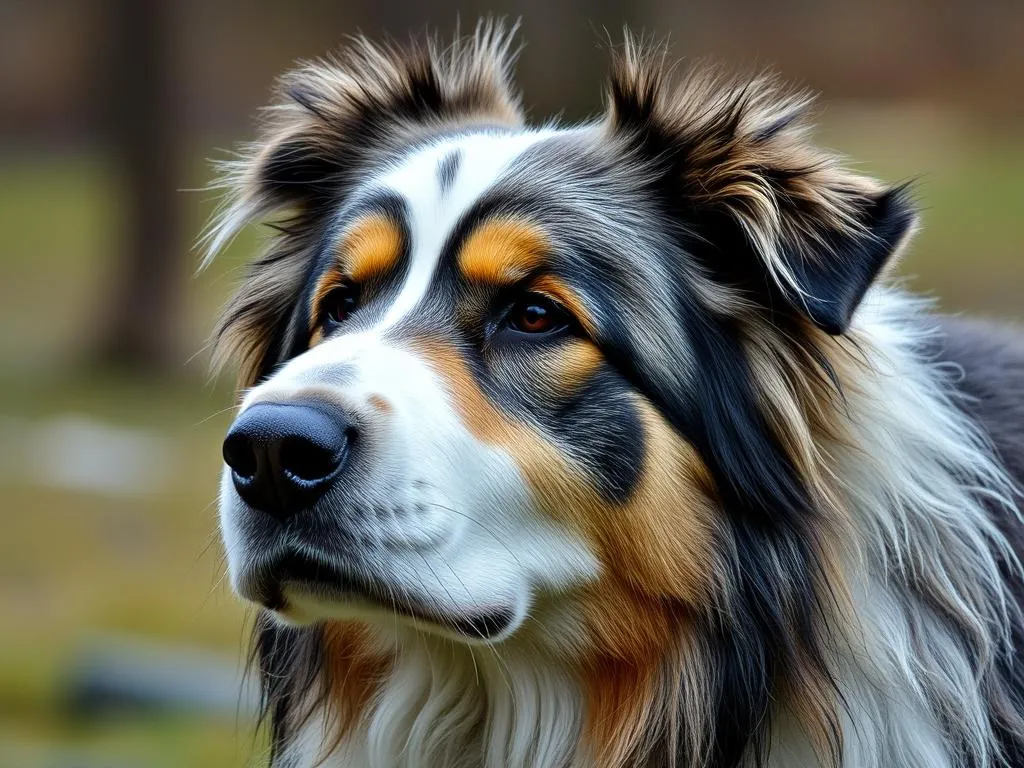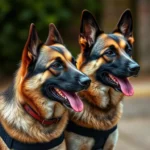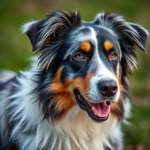
Introduction
Dog breeds play a significant role in society by serving various purposes, from companionship to specialized work. Each breed comes with distinct characteristics, temperaments, and needs, making it essential for potential dog owners to understand them before making a commitment. One breed that stands out due to its unique qualities is the Bukovina Sheepdog. Originating from the mountainous regions of Romania, this breed was primarily developed for herding and guarding livestock. Understanding the Bukovina Sheepdog, along with its origins and traits, is crucial for anyone considering welcoming this remarkable breed into their home.
Understanding Dog Breeds
Definition of Dog Breeds
A dog breed is defined as a group of domestic dogs with specific characteristics, such as size, coat type, and temperament, that are distinct from other groups. These characteristics can influence a dog’s behavior, energy level, and training needs. Understanding the traits associated with a breed can help potential owners choose a dog that fits their lifestyle and preferences.
Role of Genetics in Dog Breeding
Genetics plays a pivotal role in shaping dog breeds. Traits such as size, coat color, and temperament are passed down through generations. Selective breeding, where specific dogs are chosen to mate based on desirable traits, has led to the development of distinct breeds, including the Bukovina Sheepdog. This practice ensures that certain characteristics are preserved and enhanced, making each breed unique.
The Bukovina Sheepdog: An Overview
Origin and History
The Bukovina Sheepdog has its roots in the Bukovina region of Romania, a mountainous area known for its pastoral lifestyle. Historically, these dogs were bred for their ability to protect flocks of sheep from predators like wolves and bears. Their robust build and keen instincts made them excellent guardians, allowing farmers to safeguard their livestock effectively. Over time, as farming practices evolved, so did the Bukovina Sheepdog‘s role, transitioning from a working dog to a cherished family companion.
Physical Characteristics
The Bukovina Sheepdog is a large and powerful breed. Males typically weigh between 90-130 pounds, while females range from 70-110 pounds. They are characterized by a robust, muscular build, with a broad head and strong jaws. Their double coat is thick and weather-resistant, with colors that range from white to shades of gray, black, and brown. Grooming needs are moderate, with regular brushing required to keep their coat healthy and free of mats.
Temperament and Behavior
The Bukovina Sheepdog is known for its loyalty, intelligence, and protective nature. These dogs are deeply attached to their families and can be wary of strangers, making them excellent watchdogs. Early socialization is crucial to ensure that they develop a well-rounded temperament. They generally get along well with children and other pets, especially if raised together, but they may exhibit dominant behavior if not properly trained.
Purpose and Functionality
Herding and Guarding Instincts
With a strong herding background, the Bukovina Sheepdog possesses natural instincts that make it adept at managing livestock. Their protective tendencies are not just limited to sheep; they can guard property and deter intruders effectively. This breed thrives when given a job, whether it’s herding, guarding, or participating in dog sports that utilize their agility and intelligence.
Working and Companion Roles
Although primarily known as a working dog, the Bukovina Sheepdog can also excel as a family companion. Their intelligence and loyalty make them well-suited for various roles, including service animals. They are eager to please and can be trained to assist individuals with disabilities. Their playful nature also allows them to bond well with families, providing companionship and love.
Care and Maintenance
Nutrition and Diet
Proper nutrition is vital for the health of the Bukovina Sheepdog. A balanced diet comprising high-quality dog food rich in protein, fats, and essential nutrients is essential. Owners should consider their dog’s age, weight, and activity level when choosing the right food. Regularly scheduled feeding times and portion control can help prevent obesity, which is a common concern in larger breeds.
Exercise Requirements
The Bukovina Sheepdog has significant exercise needs due to its energetic nature. Daily walks, playtime, and mental stimulation through training or puzzle toys are crucial. These dogs thrive in environments where they can run and explore; thus, access to a large, secure yard is ideal. Engaging them in activities like agility training or herding trials can also provide the physical and mental challenges they crave.
Grooming and Health Care
Grooming the Bukovina Sheepdog requires regular brushing to maintain coat health and reduce shedding. Bathing should be done as needed, considering their outdoor activities. Routine veterinary care, including vaccinations and preventive treatments for parasites, is crucial. Common health concerns include hip dysplasia and certain genetic conditions, so regular check-ups are essential to ensure a long, healthy life.
Training and Socialization
Basic Training Needs
Early training and socialization are essential for the Bukovina Sheepdog to develop a well-adjusted personality. Positive reinforcement methods, such as treats and praise, work best for this intelligent breed. Basic commands like sit, stay, and come should be introduced early, along with socialization experiences involving different people, environments, and other animals. This helps them become more adaptable and reduces the likelihood of behavioral issues later in life.
Addressing Behavioral Issues
Like all breeds, the Bukovina Sheepdog can exhibit behavioral problems if not properly trained or socialized. Common issues include barking, stubbornness, and dominance. Addressing these problems early with consistent training and positive reinforcement techniques is essential. Professional training classes can also be beneficial, providing structured environments for learning and socialization.
Choosing the Right Dog for You
Assessing Fit for Lifestyle
When considering a Bukovina Sheepdog, potential owners should assess their lifestyle and living situation. This breed requires ample space to roam and play, making them less suitable for apartment living. Additionally, owners should evaluate their ability to provide regular exercise and mental stimulation. Questions to ask include: Do I have the time for daily walks and play? Am I prepared for the grooming needs of a large dog?
Responsible Breeding and Adoption
Selecting a reputable breeder or adoption agency is crucial for ensuring a healthy, well-bred Bukovina Sheepdog. Responsible breeders conduct health screenings and provide documentation of the dog’s lineage. Adoption can also be a wonderful option, offering a loving home to a dog in need. Potential owners should research breed-specific rescues or local shelters to find a suitable match.
Conclusion
Understanding dog breeds is vital for any potential dog owner, especially when considering a unique breed like the Bukovina Sheepdog. From their rich history and robust physical characteristics to their loyal temperament and protective instincts, this breed offers much to those willing to invest in their care and training. By appreciating the nuances of the Bukovina Sheepdog and committing to responsible ownership, families can enjoy the companionship and joy that this remarkable breed brings into their lives.
In summary, whether you are drawn to the Bukovina Sheepdog for its herding abilities, loyalty, or simply its affectionate nature, educating yourself about this breed will enhance your experience as a dog owner. Embrace the opportunity to learn more about dog breeds, and consider the unique qualities of the Bukovina Sheepdog as you embark on your journey into dog ownership.









